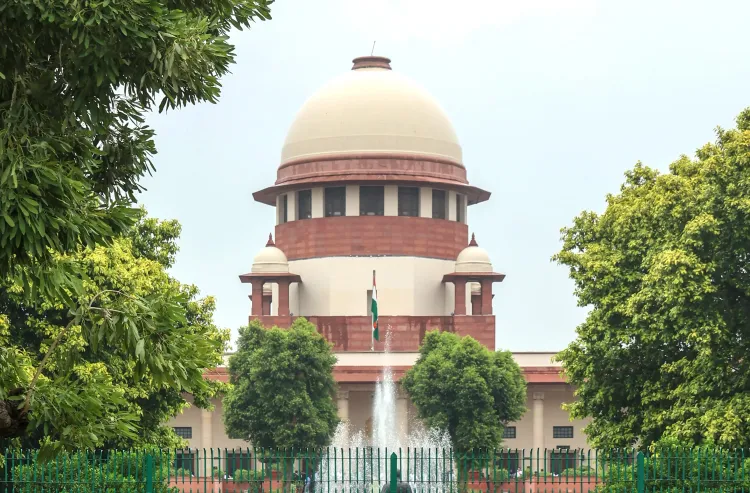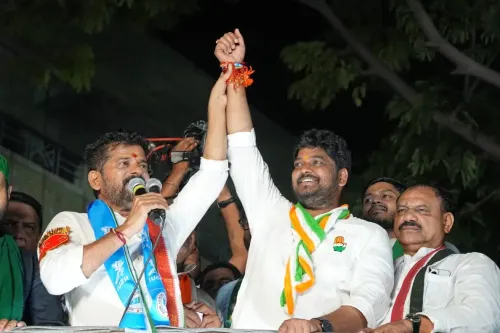Should Political Parties be Required to Publish their Memorandum and Rules on their Websites?

Synopsis
Key Takeaways
- Supreme Court notice issued regarding political party transparency.
- Mandate for online publication of party foundational documents.
- Advocate Ashwini Kumar Upadhyay's PIL emphasizes public interest.
- Political parties' accountability to citizens is crucial.
- Strengthening democracy through transparency in political operations.
New Delhi, Nov 3 (NationPress) The Supreme Court has issued a notice regarding a petition calling for the Election Commission of India (ECI) to mandate that every registered political party displays its Memorandum, Rules, and Regulations prominently on the homepage of their official websites.
This petition was brought forth by advocate Ashwini Kumar Upadhyay through a Public Interest Litigation (PIL) that seeks to compel the ECI to create and enforce regulations concerning the registration and governance of political parties, with a focus on enhancing secularism, transparency, democracy, and political justice.
The petition emphasizes that political parties are crucial components of democratic governance, acting similarly to public authorities. The petition further claims that these entities possess a constitutional status and exercise constitutional powers as outlined in the Tenth Schedule of the Constitution.
According to the application, political parties receive significant financial support from the state through various means — including tax exemptions, complimentary airtime on public broadcasting services like Doordarshan and All India Radio, and government accommodation at reduced rates — while their operations remain largely unregulated.
The governance structure is deeply intertwined with political parties, which are consistently engaged in public service; thus, the petition argues, accountability to the public is essential.
The necessity for transparency and accountability in political party operations is underscored, as these elements are critical for serving the public interest.
The petition references Section 29A of the Representation of the People Act, 1951, which governs political party registration, asserting that the ECI is both empowered and obligated to ensure that parties comply with their declared constitutions and uphold principles of socialism, secularism, and democracy.
The application contends that it is the ECI's responsibility to deregister non-compliant political parties and prevent convicted individuals from forming parties or serving as office-bearers.
The petition highlights that the Supreme Court has previously mandated the ECI to ensure transparency in electoral processes and regulate practices that impact free and fair elections. This principle should extend to the internal operations of political parties, according to the petition.
The plea calls for a directive to compel all political parties to publish their constitutions, rules, and regulations on their official website homepage, ensuring adherence to the regulations governing their registration, funding, and internal operations.
The application concludes by stating that all political parties must adhere to their Memorandum, Rules, and Regulations in both letter and spirit, emphasizing that such transparency is crucial for maintaining the integrity of elections and ensuring political accountability.









